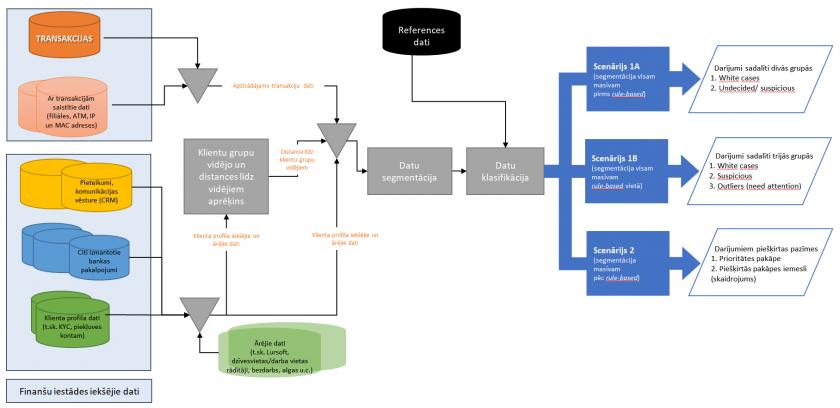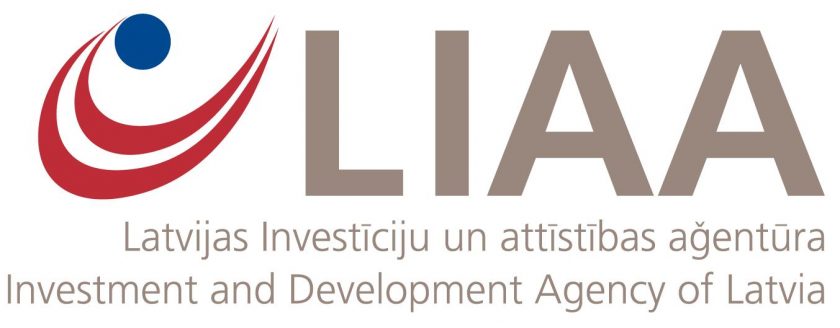European Regional Development Fund Project Application. 1.2.1. specific support goal “To Increase the Private Sector Investments R&D”; measure 1.2.1.2. “Support for Improvement of Technology Transfer System”. Project “Self-learning technology for AML detection (AML)” , Nr. KC-PI-2020/43.
Agreement with Investment and Development Agency of Latvia (LIAA) No Nr.KC-L-2017/14.
The project aims to commercialize suspicious transaction identification technology based on unsupervised, self-learning data processing technology that reduces the time and resources required to comply with the Anti-Money Laundering and Terrorism and Proliferation Financing Prevention Act.
This objective is in line with Latvia’s Smart Specialization Strategy (RIS3), as it is focused on the future growth of high value-added products and services. The services to be developed will be based on the introduction of a new, improved approach to the detection of suspicious transactions, which has significant advantages over competitors as it is independent of training data, is capable of identifying unique, different transactions and explaining to data analysts/ responsible persons what is specific/atypical with this transaction. This advantage will create competitive services that may even be well-demanded if, following the current difficulties of Latvia with the monitoring of “Moneyval” and FATF, they were successfully resolved. In this situation, the country’s difficulties can be translated into monetary gains by increasing exports of related solutions.
In the period from 01.05.2020. until 30.06.2020. work was carried out on the identification of components necessary for the development of the Feasibility Study, as well as on the collection and analysis of the information. In the AML project the work continues on new artificial intelligence (AI) algorithms for input data processing. There are a lot of missing data, absent observations, the behavior of the clients and activity of the bank changes during weekdays / holidays. But the new AI algorithm is capable of learning something new even under such limitations. It is now possible to test the self-learning network algorithm on real institutional data.

In the period from 01.07.2020. until 30.09.2020. the team was working on the preparation, finalization, formatting and translation of the Feasibility Study. An action plan for commercialization activities was also developed, a project budget was drawn up and cash flow was planned for the project implementation period. Different commercialization models have also been analyzed, and their economic rationale assessed.
All deliverables planned in the project and their translations have been submitted within the deadline set by LIAA.


